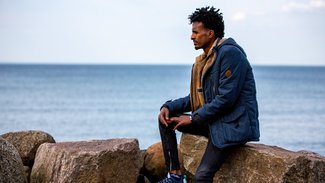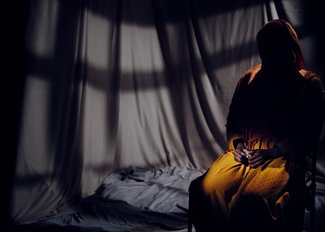
Watch
Teklebrhan finds a home after six years of flight
Teklebrhan Tefamariam Tekle escaped Eritrea twice. Today, at 27, he lives in relative comfort, adjusting to a new life in the southern Swedish city of Jönköping.

Her conservative family, too, were enraged when they discovered the pregnancy, and her parents and brothers vowed to kill her for bringing shame upon them. Rejected and threatened by her family, disowned by her clan for being pregnant and unmarried, and at risk of Shariah punishment from Al-Shabaab, Najma fled.
Although still a child herself, and seven months pregnant, she made her way to the capital Mogadishu, 120 kilometres to the north, where she stayed with a family friend. There, she gave birth to twins, but she was not safe. “My father and mother came, and my two brothers. They wanted to kill me,” Najma recalls. The family’s visit drew the attention of Al-Shabaab, too, who demanded Najma be brought before them to face justice.
It was then she knew she could never return home.
Najma suffered the heartbreak of having to leave her newborn children in Mogadishu as she set off on a dangerous and fearful search for safety. Having never set foot outside Qoryooley before she became pregnant, she embarked on a journey that was to take four years, and many thousands of kilometres, across nine countries. “It was very difficult for me to leave my children,” she says. “I felt a lot of pain.”
“I was feeling scared, I did not know where to go.”
Najma’s first stop was Bossaso, in northern Somalia, a place she had only heard of before arriving but where she thought she would be safe. The port town is a notorious starting point for refugees and migrants wishing to flee Somalia, and when Najma heard Al-Shabaab was looking for her, she joined a group of them, boarding a rickety wooden boat crammed with 70 other people for an overnight crossing to Yemen. The route across the Gulf of Aden is facilitated by smugglers and has, in recent years, emerged as one of the world’s most dangerous migration routes.
There, the unfamiliarity overwhelmed her at first: “I had never seen this city before, and I had not seen people who were not Somalis before.”
Yet, in time, she found casual employment as a domestic worker in the city of Aden and began to build a new life, alone but safe.
In late 2014, civil war began in Yemen spreading throughout the country. Once again, Najma was forced to flee. Many of the Somalis whom Najma had met resolved to return home as the war worsened in 2016, but Najma could not, so they offered advice. “I was told that Sudan is good, that there is no war, and that I can work there,” she says.
When Najma arrived in Sudan, the smugglers told her she would not be able to work, nor obtain refugee status, and that her only option was to travel to Libya. Libya would be, “easy for you”, she was told, but instead she was abducted at the border and detained alongside hundreds of others.
“They asked for ransom: everyone should pay $500,” Najma recalls. “Then everyone called their parents, [but] I had no one to call.” Unable to buy her freedom, Najma was held for four months and raped repeatedly by her captors. When they tired of her, she was abandoned in the capital Khartoum.

Wanting to escape Sudan after her ordeal and knowing nobody, Najma sought out a group of Somali university students and begged for their help to get to Egypt from where she thought she could try again for Libya. The students put Najma in touch with traffickers who took her to the southern Egyptian city of Aswan.
From there, she found other smugglers promising passage to Libya and to Italy by boat. “They tell you that the money that you are going to pay is not that much, they convince you that you will not be harmed, that you will be given food and drink, that you will not be in danger, that you will not be raped,” she says.
In desperation, Najma agreed to pay the $1,000 fee, using money she had scraped together working casual jobs in Egypt. But again, she was lied to and misled: in Libya, the smugglers demanded six times the agreed amount, beat those who could not pay, and threatened women with rape. Refugees were routinely tied up, deprived of food and water.
Amid the mounting horror, however, came a glimmer of hope. In Libya, Najma met Habiba, a fellow Somali and also a mother of two. They never made it to Italy, but became close friends, sharing the childcare and their long journey.
From Libya the two women returned to Sudan and chose a different route—longer and arduous, but less dangerous—across Africa’s middle-belt through Chad, Niger, and Algeria, to Tunisia where Najma lives today. “We laughed together, and we cried together too,” recalls Najma.
In 2021, Najma found a woman on Facebook who she knew from Qoryooley, and who was able to put her in touch with her mother for the first time in nine years. Najma hoped for a reconciliation, but it was not to be. “She said to me, ‘I am still in the calamity that you put us in!’ Do not talk to me again,’” and ended the call.
Najma has heard that her children are living in an orphanage in Somalia, but to this day she has not seen them.
* not her real name